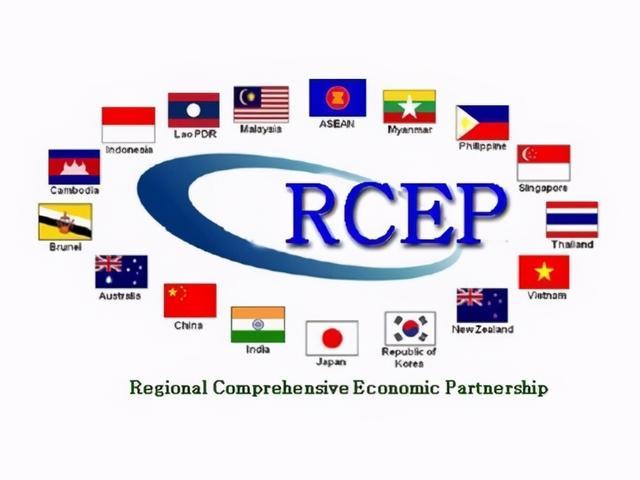RCEP: Coming into force on 1 January 2022
After eight years of negotiations, THE RCEP was signed on November 15, 2020, and reached the threshold of entry into force on November 2, 2021 through the concerted efforts of all parties. On January 1, 2022, RCEP entered into force for six ASEAN member states brunei, Cambodia, Laos, Singapore, Thailand and Vietnam and four non-ASEAN member states China, Japan, New Zealand and Australia. The remaining member states will also come into force after completing domestic ratification procedures.
Covering 20 chapters relating to trade in goods and services, movement of people, investment, intellectual property, e-commerce, competition, government procurement and dispute settlement, RCEP will create new trade and investment opportunities among the participating countries that represent roughly 30% of the world’s population.
| status | ASEAN member states | Non-ASEAN member states |
| Ratified | Singapore Brunei Thailand Lao PDR Cambodia Vietnam |
China Japan New Zealand Australia |
| Pending ratification | Malaysia Indonesia Philippines Myanmar South |
Korea |
Updates on the remaining member states
On 2 December 2021, the National Assembly Foreign Affairs and Unification Committee of South Korea voted to ratify RCEP. The ratification will need to pass the assembly’s plenary session before the ratification is formally completed. Malaysia, on the other hand, is intensifying its efforts to complete the necessary amendments to the existing legislations to enable Malaysia to ratify RCEP. The Malaysian Trade minister has indicated that Malaysia will ratify RCEP by the end of 2021.
The Philippines is also doubling its efforts to complete the ratification process within 2021. The president approved the necessary documents for RCEP in September 2021, and the same will be tabled at the Senate for concurrence in due course. For Indonesia, while the government has indicated its intention to ratify RCEP soon, there has been a delay given other more pressing domestic issues, including the management of COVID-19. Lastly, there has been no express indication of the ratification timeline by Myanmar since the political coup this year.
What should businesses do in preparation for RCEP?
As RCEP has reached a new milestone and will become effective from the start of 2022, businesses should consider whether they are able to take advantage of any benefits offered by RCEP, including, among others:
- Customs duty planning and mitigation: RCEP aims to reduce or eliminate customs duties imposed by each member state on originating goods by approximately 92% over 20 years. In particular, businesses with supply chains involving Japan, China and South Korea may take note that RCEP establishes a free trade relationship between the three nations for the first time.
- Further optimization of supply chain: As RCEP consolidates members of the existing ASEAN +1 agreements with the five non-ASEAN member states, this provides greater ease in meeting the regional value content requirements through the cumulation rule. As such, businesses may enjoy greater sourcing options as well as have more flexibility in optimizing their manufacturing processes within the 15 member states.
- Nontariff measures: Nontariff measures on importation or exportation between member states are prohibited under RCEP, except in accordance with the rights and obligations under the WTO Agreement or RCEP. Quantitative restrictions made effective through quotas or licensing restrictions are generally to be eliminated.
- Trade facilitation: RCEP stipulates trade facilitation and transparency measures, including procedures for approved exporters to make declarations of origin; transparency around import, export and licensing procedures; issuance of advance rulings; prompt customs clearance and expedited clearance of express consignments; use of IT infrastructure to support customs operations; and trade facilitation measures for authorized operators. For trade between certain countries, greater trade facilitation may be expected as RCEP introduces the option to self-certify the origin of goods through declaration of origin, as self-certification may not be available under certain ASEAN +1 agreements (e.g., the ASEAN-China FTA).
Post time: Jan-05-2022
